The US proposes H-1B changes for efficiency without altering the annual limit, streamlining eligibility, and adding flexibility for workers.
The Biden administration is looking to bring significant changes to the H-1B foreign worker visa program, aimed at streamlining eligibility criteria and enhancing flexibility for F-1 students, entrepreneurs, and other non-immigrant workers. These changes do not impact the Congress-mandated annual cap of 60,000 H-1B visas issued by the US.
What is the H-1B Visa Program?
The H-1B visa is a non-immigrant visa that enables US companies to hire foreign workers for specialty occupations demanding technical or theoretical expertise. Typically granted for three to six years, it can be renewed indefinitely for those involved in the Green Card application process. Many technology companies rely on H-1B visas to employ professionals, with a significant number coming from India and China.
Why were these changes proposed?
The proposal addresses the issue of misuse within the H-1B registration system. In recent years, the number of registrations submitted on behalf of individuals increased, raising suspicions of misuse. Some sponsoring employers made multiple registrations for the same individual to boost their chances of selection without job offers. The changes aim to level the playing field and enhance the chances of a legitimate registration being selected.
What are the key changes proposed?
1. Elimination of multiple entries: Employers can no longer submit multiple entries for the same employee, addressing artificial inflation of selection chances. Passport information for each employee must be provided.
2. Removing "employer-employee" requirement: The proposed rule simplifies the process, allowing entrepreneurs to utilize the H-1B program for their businesses more effectively. Foreign nationals can be sponsored for an H-1B visa by their company.
3. Flexible job offers: Recognizing the changing work culture post-COVID, bona fide job offers can include telework, remote work, or off-site work within the US.
4. Extended cap-gap provision: F-1 visa students seeking a change of status to H-1B would benefit from an extended cap-gap provision. Under the new rule, the F-1 Optional Practical Training can be extended until April 1 of the following year or until they receive their H-1B visa.
These proposed changes aim to streamline eligibility, enhance program efficiency, and provide greater benefits and flexibility to employers and workers while strengthening integrity measures. The Biden administration's goal is to attract global talent, reduce burdens on employers, and prevent fraud and abuse in the immigration system. The proposal is expected to be introduced before the next H-1B cap registration season in early 2024.
![submenu-img]() Sonakshi Sinha talks about life after marrying Zaheer Iqbal, reacts to pregnancy rumours: 'Hum hospital...'
Sonakshi Sinha talks about life after marrying Zaheer Iqbal, reacts to pregnancy rumours: 'Hum hospital...' ![submenu-img]() Watch: Rohit Sharma's hilarious take on Suryakumar's T20 World Cup Final catch goes viral
Watch: Rohit Sharma's hilarious take on Suryakumar's T20 World Cup Final catch goes viral![submenu-img]() Mukesh Ambani's Antilia decked up in stunning lights for Anant Ambani-Radhika Merchant wedding, watch video goes viral
Mukesh Ambani's Antilia decked up in stunning lights for Anant Ambani-Radhika Merchant wedding, watch video goes viral![submenu-img]() Maharashtra CM Eknath Shinde announces prize money for T20 World Cup-winning Team India
Maharashtra CM Eknath Shinde announces prize money for T20 World Cup-winning Team India![submenu-img]() UEFA Euro 2024: When and where to watch Portugal vs France quarter-final live on TV and online in India
UEFA Euro 2024: When and where to watch Portugal vs France quarter-final live on TV and online in India![submenu-img]() Scrapping NEET-UG exam not rational, will jeopardise interest of honest students: Centre to SC
Scrapping NEET-UG exam not rational, will jeopardise interest of honest students: Centre to SC![submenu-img]() Meet Indian science genius who won over 100 awards, inspired character played by Akshay Kumar, he is called...
Meet Indian science genius who won over 100 awards, inspired character played by Akshay Kumar, he is called...![submenu-img]() NEET PG entrance exam new date out: Exam to be held on...
NEET PG entrance exam new date out: Exam to be held on...![submenu-img]() Meet India's youngest Chartered Accountant, completed PG at 18, holds double Guinness Record for...
Meet India's youngest Chartered Accountant, completed PG at 18, holds double Guinness Record for...![submenu-img]() Meet Indian genius, who worked on NASA's Rs 73700 crore project, married to a scientist, she is...
Meet Indian genius, who worked on NASA's Rs 73700 crore project, married to a scientist, she is...![submenu-img]() UK PM Rishi Sunak Resigns, Concedes Defeat To Keir Starmer In UK Polls As Labour Wins Over 300 Seats
UK PM Rishi Sunak Resigns, Concedes Defeat To Keir Starmer In UK Polls As Labour Wins Over 300 Seats![submenu-img]() Rahul Gandhi Meets The Victims Of Hathras Stampede, Assures Full Support From Congress
Rahul Gandhi Meets The Victims Of Hathras Stampede, Assures Full Support From Congress![submenu-img]() UK PM Rishi Sunak Resigns, Concedes Defeat To Keir Starmer In UK Polls As Labour Wins Over 300 Seats
UK PM Rishi Sunak Resigns, Concedes Defeat To Keir Starmer In UK Polls As Labour Wins Over 300 Seats![submenu-img]() Breaking News: Fire Breaks Out At Logix Mall In Noida, Rescue Operation Underway | Uttar Pradesh
Breaking News: Fire Breaks Out At Logix Mall In Noida, Rescue Operation Underway | Uttar Pradesh![submenu-img]() Hathras Stampede: What Caused Hathras Stampede, Victim’s Daughter Narrates Horrific Mishap
Hathras Stampede: What Caused Hathras Stampede, Victim’s Daughter Narrates Horrific Mishap![submenu-img]() DNA Verified: Did Kangana Ranaut party with gangster Abu Salem? Actress reveals who's with her in viral photo
DNA Verified: Did Kangana Ranaut party with gangster Abu Salem? Actress reveals who's with her in viral photo![submenu-img]() DNA Verified: New Delhi Railway Station to be closed for 4 years? Know the truth here
DNA Verified: New Delhi Railway Station to be closed for 4 years? Know the truth here![submenu-img]() DNA Verified: Did RSS chief Mohan Bhagwat praise Congress during Lok Sabha Elections 2024? Know the truth here
DNA Verified: Did RSS chief Mohan Bhagwat praise Congress during Lok Sabha Elections 2024? Know the truth here![submenu-img]() DNA Verified: Is CAA an anti-Muslim law? Centre terms news report as 'misleading'
DNA Verified: Is CAA an anti-Muslim law? Centre terms news report as 'misleading'![submenu-img]() DNA Verified: Lok Sabha Elections 2024 to be held on April 19? Know truth behind viral message
DNA Verified: Lok Sabha Elections 2024 to be held on April 19? Know truth behind viral message![submenu-img]() Kamal Haasan's Indian 2 gets U/A certificate, CBFC asks these 5 changes, including replacement of...
Kamal Haasan's Indian 2 gets U/A certificate, CBFC asks these 5 changes, including replacement of...![submenu-img]() In pics: Team India's T20 World Cup victory parade in Mumbai
In pics: Team India's T20 World Cup victory parade in Mumbai![submenu-img]() Meet actor who worked as door-to-door salesman, earned Rs 1600, struggled for 3 years after debut, became star with...
Meet actor who worked as door-to-door salesman, earned Rs 1600, struggled for 3 years after debut, became star with...![submenu-img]() From Salman Khan, Justin Bieber to Karan Aujla, check full list of star performances at Anant Ambani-Radhika's sangeet
From Salman Khan, Justin Bieber to Karan Aujla, check full list of star performances at Anant Ambani-Radhika's sangeet![submenu-img]() 5 warm moments Ranveer Singh shared with fans that show why he is their favourite
5 warm moments Ranveer Singh shared with fans that show why he is their favourite![submenu-img]() Anvita Group takes up Rs 2000 crore mega residential realty project
Anvita Group takes up Rs 2000 crore mega residential realty project![submenu-img]() Love problem solution in Canada, USA, UK - Astrologer Manish Sharma
Love problem solution in Canada, USA, UK - Astrologer Manish Sharma ![submenu-img]() Out on parole, Amritpal Singh, Engineer Rashid take oath as Lok Sabha MPs
Out on parole, Amritpal Singh, Engineer Rashid take oath as Lok Sabha MPs![submenu-img]() 'Will be engaging experts...': Assam CM Himanta Biswa Sarma visits flood-hit areas in Dibrugarh
'Will be engaging experts...': Assam CM Himanta Biswa Sarma visits flood-hit areas in Dibrugarh![submenu-img]() Weather update: Delhi-NCR likely to receive moderate rainfall with thunderstorms today, check IMD forecast
Weather update: Delhi-NCR likely to receive moderate rainfall with thunderstorms today, check IMD forecast![submenu-img]() Lok Sabha Speaker's Election: What does the Constitution say?
Lok Sabha Speaker's Election: What does the Constitution say?![submenu-img]() Explained: Why is Kerala demanding to change its name to Keralam?
Explained: Why is Kerala demanding to change its name to Keralam?![submenu-img]() DNA Explainer: What is Kafala system that is prevalent in gulf countries? Why is it considered extremely brutal?
DNA Explainer: What is Kafala system that is prevalent in gulf countries? Why is it considered extremely brutal? ![submenu-img]() Lok Sabha Elections 2024: What are exit polls? When and how are they conducted?
Lok Sabha Elections 2024: What are exit polls? When and how are they conducted?![submenu-img]() DNA Explainer: Why was Iranian president Ebrahim Raisi seen as possible successor to Ayatollah Khamenei?
DNA Explainer: Why was Iranian president Ebrahim Raisi seen as possible successor to Ayatollah Khamenei?![submenu-img]() Sonakshi Sinha talks about life after marrying Zaheer Iqbal, reacts to pregnancy rumours: 'Hum hospital...'
Sonakshi Sinha talks about life after marrying Zaheer Iqbal, reacts to pregnancy rumours: 'Hum hospital...' ![submenu-img]() Meet singer with Rs 2350 net worth performing at Anant Ambani-Radhika Merchant's sangeet ceremony, he owns...
Meet singer with Rs 2350 net worth performing at Anant Ambani-Radhika Merchant's sangeet ceremony, he owns...![submenu-img]() How many crores is Badshah charging on Anant Ambani, Radhika Merchant's sangeet ceremony
How many crores is Badshah charging on Anant Ambani, Radhika Merchant's sangeet ceremony![submenu-img]() Samantha slammed by doctor for spreading 'misinformation' about alternate therapies: 'She is a serial offender'
Samantha slammed by doctor for spreading 'misinformation' about alternate therapies: 'She is a serial offender'![submenu-img]() After criticising Kalki, Mukesh Khanna makes another big statement against Prabhas film, claims Shaktimaan will be..
After criticising Kalki, Mukesh Khanna makes another big statement against Prabhas film, claims Shaktimaan will be..![submenu-img]() Mukesh Ambani's Antilia decked up in stunning lights for Anant Ambani-Radhika Merchant wedding, watch video goes viral
Mukesh Ambani's Antilia decked up in stunning lights for Anant Ambani-Radhika Merchant wedding, watch video goes viral![submenu-img]() In a first, robot commits suicide because he was made to do...
In a first, robot commits suicide because he was made to do...![submenu-img]() NASA reveals 120-foot asteroid, as big as a plane, will approach Earth on this day at a massive speed of...
NASA reveals 120-foot asteroid, as big as a plane, will approach Earth on this day at a massive speed of... ![submenu-img]() Inside pics of Dubai villa that Mukesh Ambani, Nita Ambani gifted their 'choti bahu' Radhika Merchant, it is worth Rs…
Inside pics of Dubai villa that Mukesh Ambani, Nita Ambani gifted their 'choti bahu' Radhika Merchant, it is worth Rs…![submenu-img]() Anant Ambani-Radhika Merchant wedding: Who all are invited by Mukesh Ambani, Nita Ambani for the grand wedding
Anant Ambani-Radhika Merchant wedding: Who all are invited by Mukesh Ambani, Nita Ambani for the grand wedding









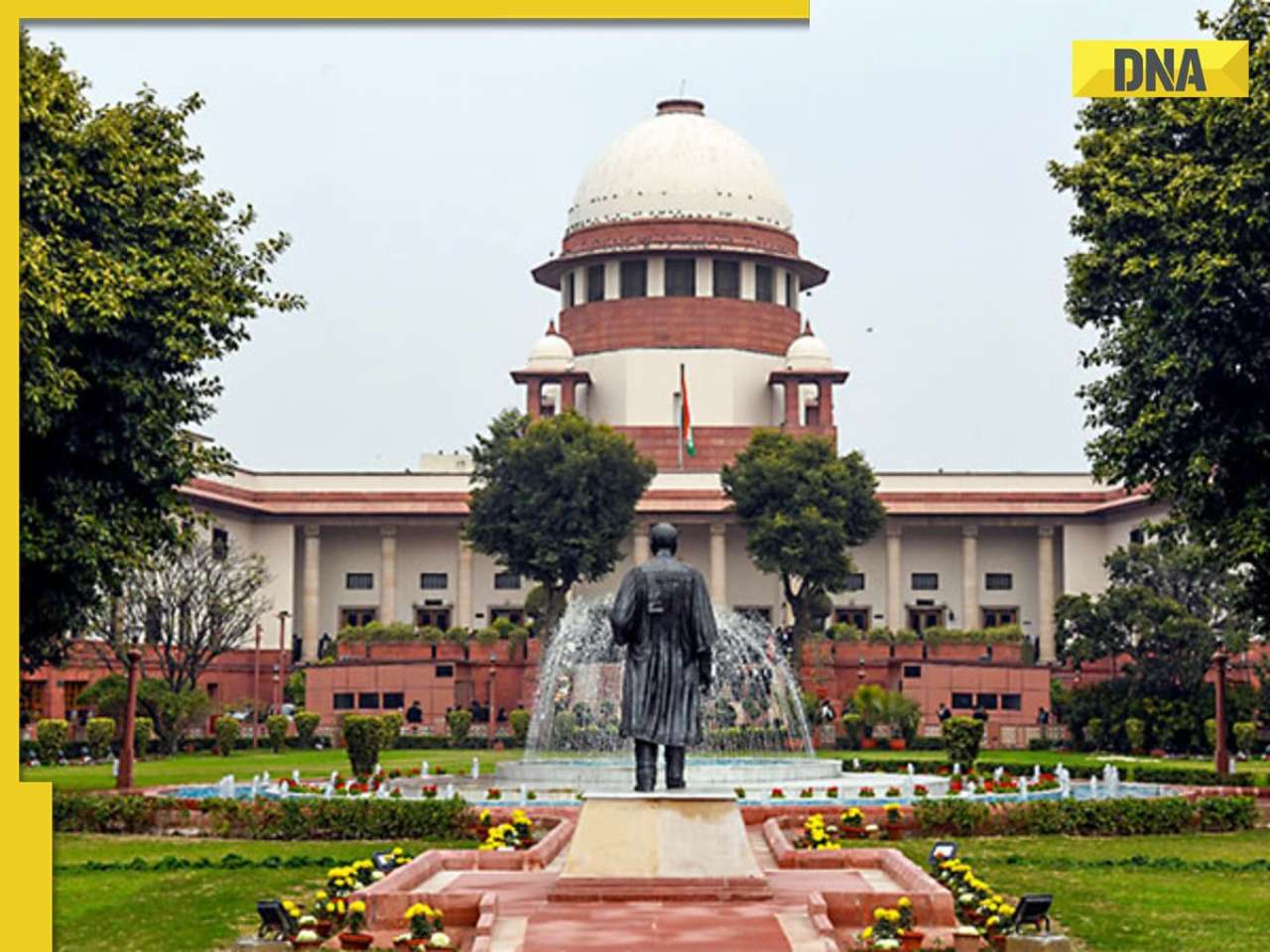






















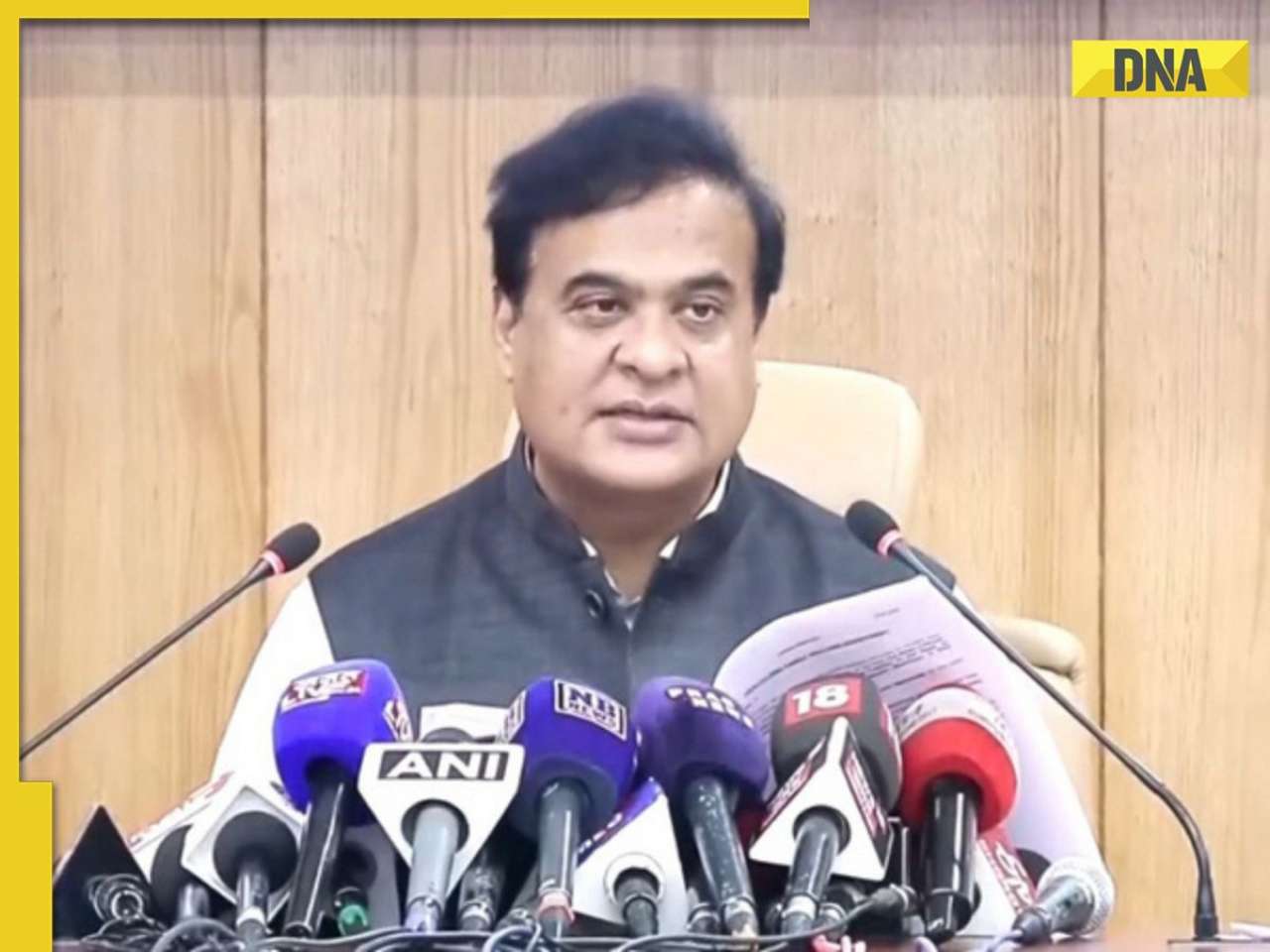

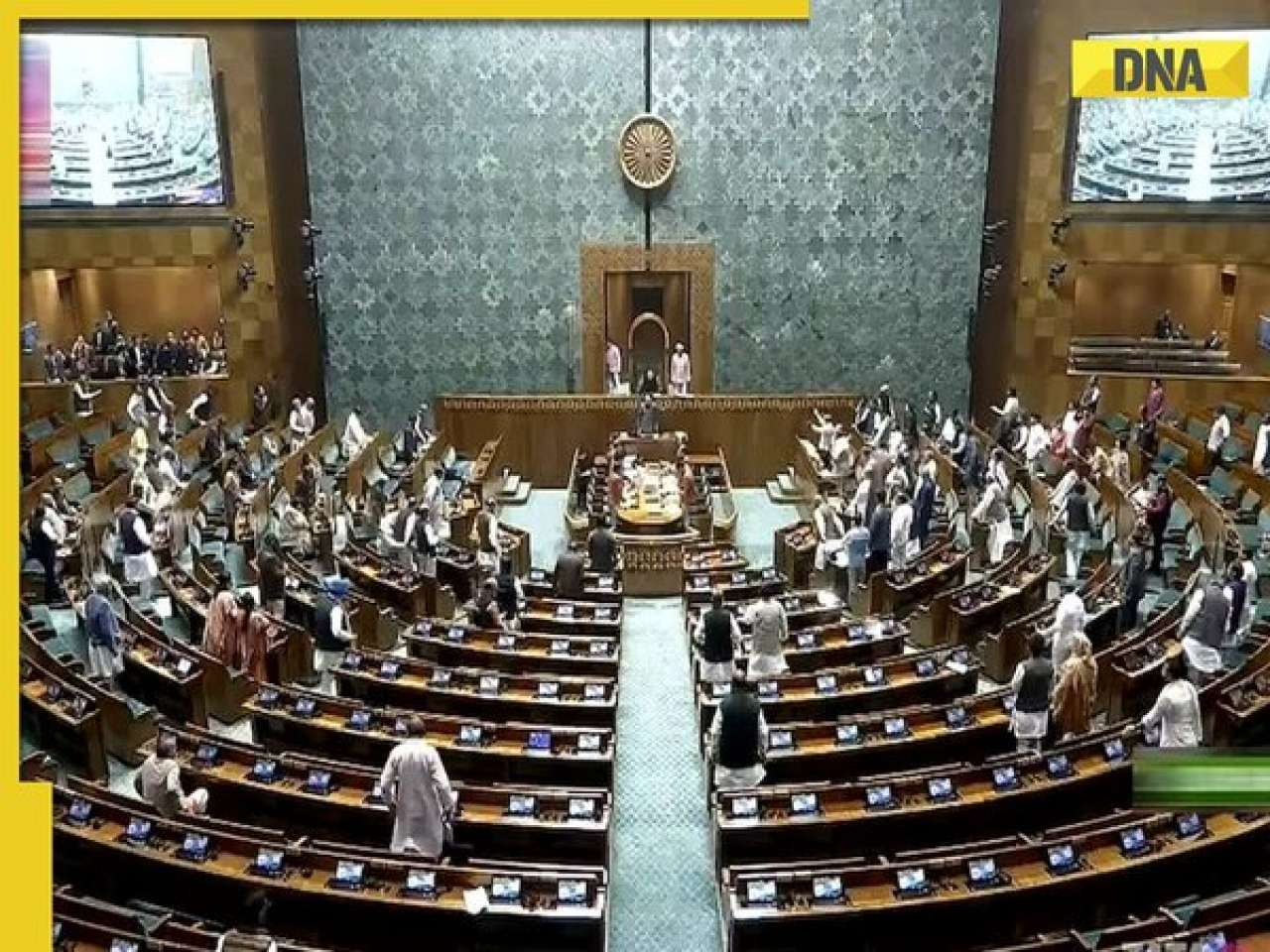
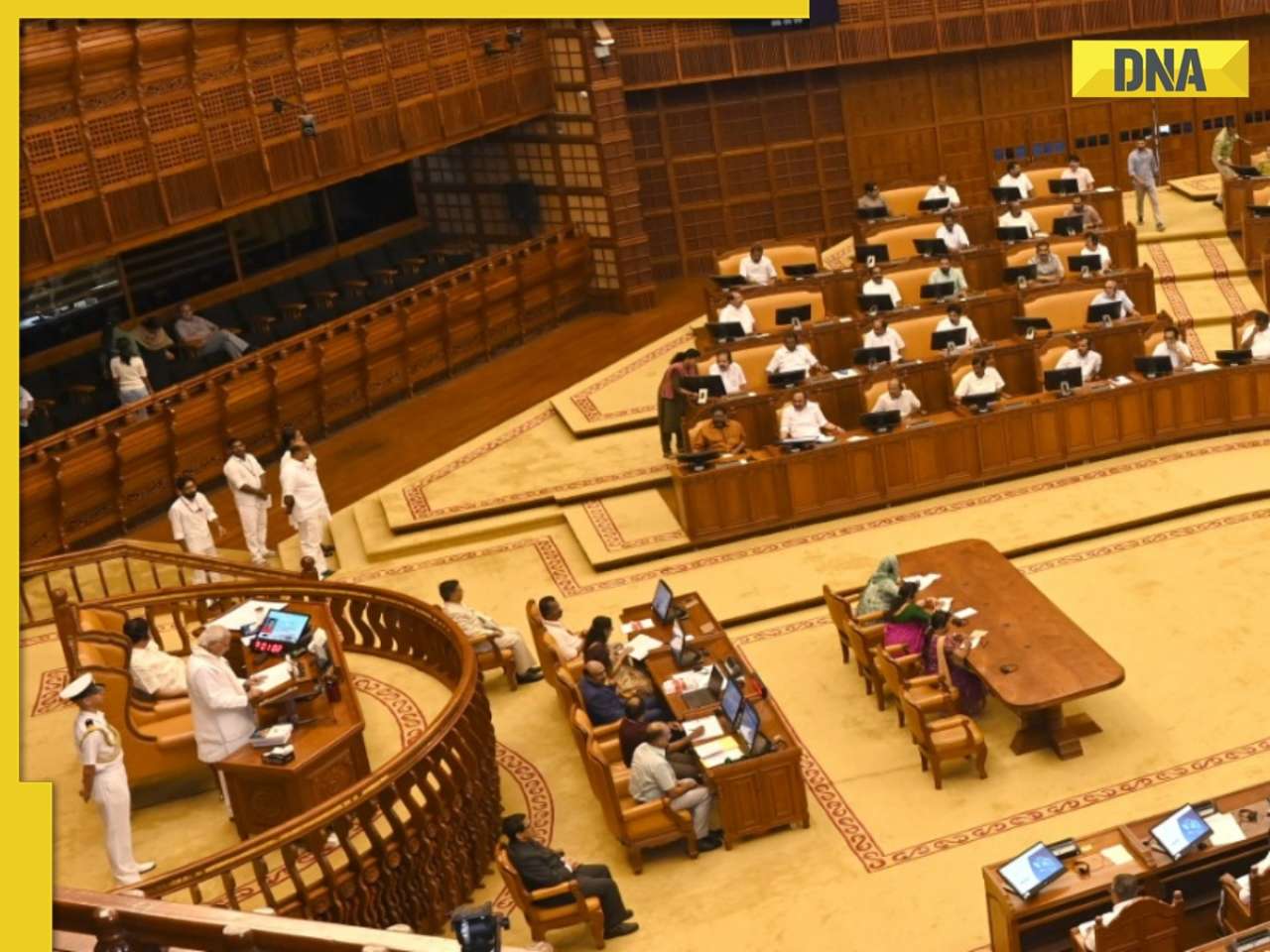












)








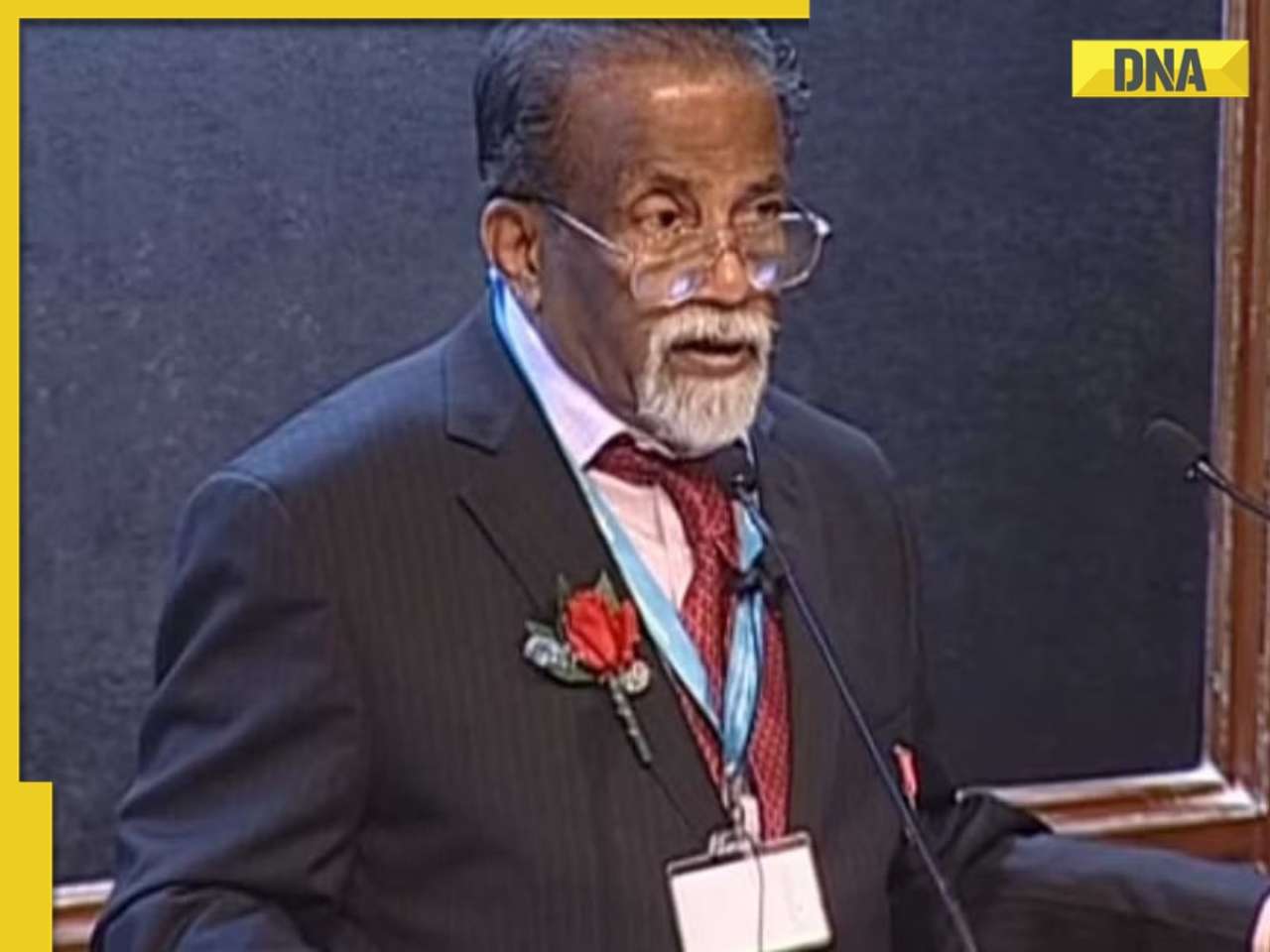









)
)
)
)
)
)